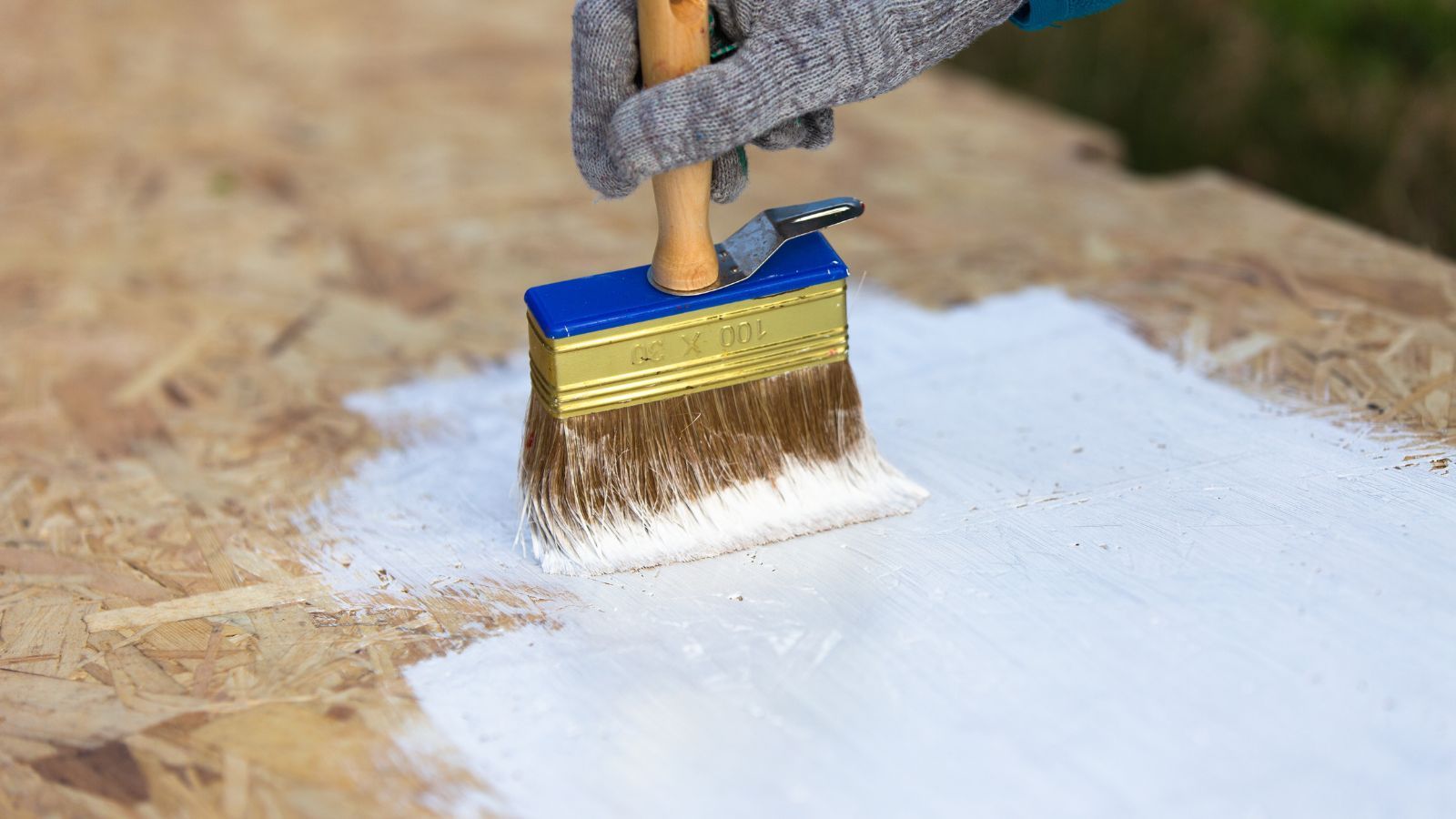Understanding Paint Smell and Its Causes

The pungent odor of freshly painted walls is a familiar experience, often signaling a new beginning or a refreshed space. However, this odor can linger for days, weeks, or even months, depending on several factors. Understanding the chemical compounds responsible for this smell and the factors influencing its intensity and duration is crucial for managing it effectively.
Chemical Compounds Responsible for Paint Odor, How to remove paint smell from bedroom
Paint odor primarily stems from volatile organic compounds (VOCs), which are organic chemicals that readily evaporate at room temperature. These compounds are released from the paint as it dries, contributing to the characteristic paint smell. The specific VOCs present in paint vary depending on the type of paint, but common examples include:
- Formaldehyde: A colorless gas with a pungent odor, often used as a preservative and in the production of resins. It is known to be a potential irritant and carcinogen.
- Acetone: A colorless liquid with a strong, sweet odor, used as a solvent and in the production of plastics. It can cause eye, nose, and throat irritation.
- Toluene: A colorless liquid with a sweet, pungent odor, used as a solvent and in the production of paints, adhesives, and other products. It is known to be a neurotoxin and can cause respiratory problems.
- Xylene: A colorless liquid with a sweet, pungent odor, used as a solvent and in the production of paints, varnishes, and other products. It can cause eye, nose, and throat irritation and can be harmful to the nervous system.
Factors Influencing Paint Smell Intensity and Duration
The intensity and duration of paint smell can be influenced by several factors:
- Paint Type: The type of paint used significantly impacts the odor. Oil-based paints typically have a stronger and longer-lasting odor compared to water-based paints. This is because oil-based paints contain more VOCs than water-based paints.
- Ventilation: Adequate ventilation plays a crucial role in reducing paint smell. Opening windows and doors allows fresh air to circulate, carrying away VOCs and reducing the odor.
- Room Size: The size of the room also influences the odor intensity. Smaller rooms tend to trap more VOCs, resulting in a stronger and longer-lasting odor.
- Temperature and Humidity: Higher temperatures and humidity can accelerate the evaporation of VOCs, leading to a stronger and more persistent odor.
- Paint Thickness: Thicker coats of paint release more VOCs, resulting in a stronger odor.
Common Paint Types and Odor Characteristics
Different paint types have varying odor characteristics:
- Oil-Based Paints: Oil-based paints have a strong, pungent odor that can linger for weeks or even months. They contain a high concentration of VOCs, which contribute to their strong smell.
- Water-Based Paints: Water-based paints have a milder odor that dissipates faster than oil-based paints. They contain fewer VOCs, making them a more environmentally friendly option.
- Latex Paints: Latex paints are a type of water-based paint known for their low odor and fast drying time.
- Acrylic Paints: Acrylic paints are another type of water-based paint that offers excellent durability and a low odor.
Effective Methods for Removing Paint Smell

The lingering odor of paint can be a major nuisance, making it difficult to enjoy your freshly painted bedroom. Fortunately, several effective methods can help eliminate this unpleasant smell and restore the pleasant ambiance of your space. Let’s explore some of these techniques, ranging from simple ventilation to more specialized odor-absorbing solutions.
Ventilation Techniques
Proper ventilation plays a crucial role in removing paint odors. It allows fresh air to circulate, carrying away the volatile organic compounds (VOCs) responsible for the smell.
- Open Windows and Doors: The simplest and most effective method is to open windows and doors, creating a cross-breeze that draws out stale air and brings in fresh air. This should be done for several hours, or even days, depending on the intensity of the smell and the size of the room.
- Use Fans: Fans can accelerate the ventilation process by moving air more rapidly. Position fans near open windows to draw out the paint smell and push fresh air into the room. Ceiling fans can also be helpful, as they circulate air throughout the space.
- Air Purifiers: Air purifiers equipped with HEPA filters can effectively trap and remove VOCs, including those responsible for paint odor. These devices are particularly useful for smaller rooms and can be run continuously for several days to neutralize the smell.
Natural Odor Absorbers
Nature offers a variety of materials that can absorb odors, including paint smells. These natural absorbers work by trapping odor molecules, effectively reducing their concentration in the air.
- Activated Charcoal: Activated charcoal is a highly porous material with a large surface area, making it excellent for absorbing odors. Place bowls of activated charcoal in the corners of the room or hang charcoal bags in closets.
- Baking Soda: Baking soda is a common household item known for its odor-absorbing properties. Place open containers of baking soda in the room or sprinkle it on carpets and rugs. Leave it for a few days, then vacuum it up to remove the absorbed odors.
- Coffee Grounds: Coffee grounds, like activated charcoal, have a high surface area that can trap odor molecules. Place open containers of coffee grounds in the room or use them to make a simple air freshener by placing them in a cheesecloth bag and hanging it in the room.
Chemical Odor Neutralizers
While natural methods are effective, chemical odor neutralizers can offer a faster and more potent solution. These products contain chemicals that react with and neutralize odor molecules.
- Ozone Generators: Ozone generators release ozone gas, a powerful oxidizer that breaks down odor molecules. While effective, ozone generators should be used with caution as ozone can be harmful to humans and pets. It is essential to follow the manufacturer’s instructions carefully and ensure proper ventilation after use.
- Odor Eliminators: Many commercially available odor eliminators contain enzymes or other chemicals that break down odor molecules. These products are typically sprayed or applied to surfaces and can be effective in neutralizing paint smells.
Additional Tips for Freshening Your Bedroom: How To Remove Paint Smell From Bedroom

After tackling the paint smell, it’s time to give your bedroom a fresh start. A clean and inviting space will help you enjoy the fruits of your labor and create a truly relaxing haven.
Thorough Bedroom Cleaning
A deep clean is essential for removing lingering paint particles and dust that may have settled during the painting process. This step ensures a fresh and healthy environment for you and your family.
- Dusting and Vacuuming: Start by dusting all surfaces, including furniture, shelves, and windowsills. Pay close attention to corners and crevices where dust tends to accumulate. Vacuum the entire floor, including under furniture, to remove any loose paint particles or dust.
- Washing Walls and Surfaces: Use a damp cloth and mild detergent to clean walls and surfaces that may have paint splatters. For stubborn stains, you can use a specialized paint remover or a solution of baking soda and water.
- Cleaning Bedding and Curtains: Wash your bedding and curtains according to their care instructions. This will help remove any lingering paint odors and freshen up your bedroom.
Incorporating Air Fresheners
Air fresheners can help mask any remaining paint smell and add a pleasant fragrance to your bedroom. However, it’s crucial to consider their potential impact on health and allergies.
- Natural Air Fresheners: Opt for natural air fresheners like essential oil diffusers or scented candles made with natural ingredients. These options are generally safer for those with sensitivities or allergies.
- Artificial Air Fresheners: If you choose to use artificial air fresheners, look for products with low VOCs (volatile organic compounds) and avoid those with strong, overpowering scents. These can trigger headaches or respiratory issues in some individuals.
- Ventilation: Remember that good ventilation is key to minimizing the impact of any air fresheners. Open windows and doors to allow fresh air to circulate and dissipate any strong odors.
Using Plants for Air Purification
Plants are a natural way to purify the air and add a fresh scent to your bedroom. They can also help create a more calming and relaxing atmosphere.
- Popular Air Purifying Plants: Some popular air purifying plants include snake plants, peace lilies, spider plants, and aloe vera. These plants are known for their ability to remove harmful toxins from the air.
- Placement and Care: Place plants in well-lit areas of your bedroom and provide them with adequate water and care.
- Scent: Certain plants, such as lavender and jasmine, also release pleasant fragrances that can further enhance the scent of your bedroom.
How to remove paint smell from bedroom – Ah, the sweet scent of a freshly painted bedroom! But sometimes, that smell lingers a bit too long. Don’t fret, my dear! There are ways to banish that paint odor. A good airing out is always a good start, and perhaps even some fragrant candles.
But for a truly tranquil sleep haven, consider a fresh coat of paint in one of the best bedroom colors of 2015. These soothing hues, from calming blues to serene greens, will not only create a peaceful atmosphere but also help to mask any lingering paint smell, leaving you with a sanctuary of serenity.
Ah, the sweet scent of fresh paint! While it’s a sign of a new beginning, that lingering odor can be a bit overwhelming. Open windows, use baking soda, and even consider placing bowls of vinegar around the room to help neutralize the smell.
If you’re looking for a serene and calming atmosphere, perhaps consider incorporating some ocean themed bedroom paint colors – the cool blues and greens can evoke a sense of tranquility and help mask any lingering paint fumes. Remember, patience is key when it comes to removing paint smell, but with time and a few simple tricks, your bedroom will soon be a haven of fresh air and serenity.